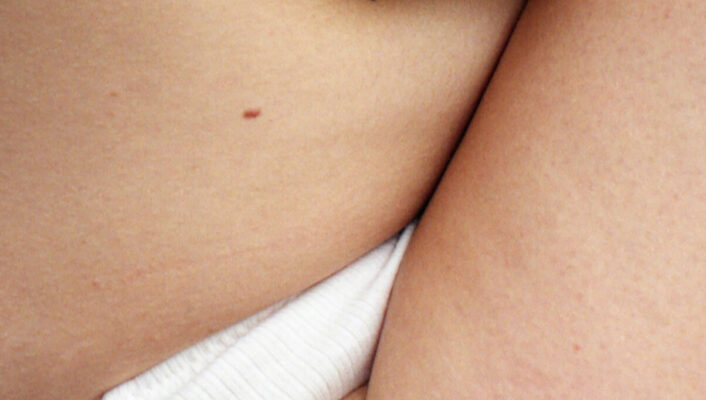On the morning of September 10th, 1943, the Nazis finally descended on Rome. That same evening, my then thirteen-year-old grandfather, Nonno Guido, sat with his parents, brother and sister around an eerily quiet dining room table. The family ate their meal in silence until my great grandfather Saul stood up and allegedly uttered the following words: “Children, we have to leave the flat now. We won’t be able to stay together. We must leave immediately because the Germans are entering Rome and they’re taking the Jews.”
Only a few hours later, my grandfather and his family fled the capital in a frenzy, having abandoned their dirty dishes on a crumb-scattered tablecloth. For the next nine months, they evaded the horrors of death camps and gas chambers, striving day in and day out for survival in Nazi-occupied Italy. I often think about what might have happened if my great grandfather hadn’t taken the news so seriously. Would my grandfather have been caught like the 1,259 Jews living in Rome’s ghetto–its vibrant Jewish district–who were rounded up like cattle on the morning of October 16th, 1943 and sent to their deaths during the Raid of the Ghetto of Rome? Of these deportees, only 15 men and one woman survived, and hundreds more were detained over the course of those nine months. Most died at Auschwitz on the same day they arrived, my grandfather’s Uncle Alberto one of them. If Saul hadn’t acted so quickly, would Nonno have survived? Would I even be here? It’s impossible not to wonder.
When my brothers, cousins and I were children, we would beg my grandfather, now 91, to tell us stories about the war. Nonno Guido is a profoundly intellectual, yet simple man–a man who believes equally in the importance of context as he does in the art of dunking bread in sugary milk. Much to our dismay at the time, this meant that the stories we longed to hear about the terrifying experiences he had faced while on the run usually began with thorough lectures on modern history. I still remember my clammy hand clutching his during summer hiking holidays in San Vigilio di Marebbe, the mighty Dolomites all around us, a shiver making its way down my spine as he recounted the many close calls he’d experienced during those nine long months in hiding.

Years later, I would watch Roberto Benigni’s 1997 film La vita è bella, or Life is Beautiful, for the very first time. It was one of the most visceral and heart-wrenching cinematic experiences of my life. The film moved me to my core, adding new layers of meaning to the stories my Nonno had shared about his plight from the Nazis. Written, directed and starring the sensational Roberto Benigni, the critically-acclaimed La vita è bella stays with you long after the closing credits have rolled.
Benigni tactfully employs the universal language of comedy to convey the unimaginable horrors of the Holocaust without ridiculing–or trivialising–its tragedy. In total, about 7,172 Italian Jews died in the Holocaust, a figure that climbs to 8,879 when the territory island of Rhodes, which was under Italian rule at the time, is taken into account. One of Italy’s most popular entertainers, Benigni was well aware that he was dealing with an enormously sensitive subject matter–and that incorporating comedy when portraying such a tragic event would inevitably cause controversy. Although he worked closely with Jewish-Italian historical consultant Marcello Pezzetti and Auschwitz survivor Shlomo Venezia on the film’s representation of the Holocaust, the director has often stated that his intention was never for the work to be entirely historically accurate; rather, La vita è bella is a story about human spirit, intended to honour the suffering of the Italian Jewish community. Perhaps its genius lies in the fact that it is equal parts joyful and devastating. And despite watching it more times than I can count, I find myself both uncontrollably weeping and laughing every time I put it on.
The brilliant tragicomedy revolves around the story of the infinitely optimistic Guido Orefice, played flawlessly by Benigni himself. Guido (who coincidentally shares my grandfather’s same first name) is a Jewish-Italian bookshop owner who uses the powers of his imagination to shield his young son from the darkness of war. But the story is not solely one of misfortune. The first half of La vita è bella is lighthearted, easy and tremendously funny. The tale begins in 1939 in the Kingdom of Italy, where rolling Tuscan hills and the charming city of Arezzo paint a picture of an idyllic Italian paradise. Guido works as a waiter at the Grand Hotel, his world shaped by humour and a firm belief in love’s abilities to sustain and transform. He soon meets and falls in love with Dora, a young school teacher who is already engaged to a wealthy businessman. After a series of “coincidental” run-ins between the two, one of which sees Guido absurdly impersonate a member of the National Fascist Party, Dora quickly comes to love his clown-like charisma and charming naivety.

Fast forward a few years and Guido and Dora are married and have a son, Giosué; but the year is 1944, the Nazis have made their way into Italy and deportations are well under way. The atmosphere has drastically shifted, making the contrast between the sun-drenched hills of Tuscany and the storm clouds of war even more palpable. In one scene, we see Guido and little Giosué strolling through the streets of Arezzo. Giosué stops in front of a pastry shop, peering in at the sugary treats in the vitrine before him, and asks his father if they can take some home to mamma. As the child stares longingly at the sweets, a large sign hovers just above his head: vietato l’ingresso agli ebrei e ai cani–forbidden entry to Jews and dogs. Giosué’s curiosity suddenly shifts; he spots the sign and uses his index finger–like all children his age, who are only just learning how to read, would–to guide him through the sentence. He stutters his way through the sign and then proceeds to ask his father the obvious question: Why? Why are Jews and dogs not allowed entry, Papȧ? This brief and hard-hitting scene always strikes a chord; Giosué’s question is obvious, banal even, but its innocence is precisely what makes it profoundly moving. We all know what the child is really asking. Why are we not wanted here?
In typical Guido fashion, he quickly comes up with a humorous explanation to hide the dark reality of the words from his son. Guido explains how everyone can–and should–do as they please. He jokes about a hardware store down the road that forbids entry to horses and Spaniards, and a pharmacist he knows who welcomes everyone but kangaroo-owning men. Anti-semistim, he implies, is merely an insignificant matter of taste. Luckily, the five-year-old Giosué seems satisfied with this unlikely explanation, and the father and son walk on.

As the second half of La vita è bella unfolds, we see Guido, Dora and Giosué’s happy life unravel. The family is separated when Guido and Giosué are deported to a concentration camp, where the loving father’s ingenuity really comes to the fore. They’re sent to their designated sleeping quarters and we watch as a stunned Guido reacts to the starving prisoners and filthy conditions of the barracks. A maestro of hope and zeal, he quickly gathers his composure and pretends that their grim surroundings are all part of the elaborate fun and games. When Giosué starts questioning when they can leave, Guido explains that first they must compete in the game like everyone else. Only when they’ve earned a thousand points will they be awarded the ultimate prize–an army tank and a reunion with mamma.
In another scene, Guido and numerous male prisoners are lined up for a health check. As the Nazi doctor inspecting each prisoner nears closer, Guido recognises him from his time spent working at the Grand Hotel back in Arezzo. The doctor had once been a regular visitor, and an unlikely friendship had formed between the two based on their mutual love of riddles. Only when the men are standing face to face does the doctor finally recognise the prisoner before him. Guido, he mouths. In a later scene, the doctor approaches Guido and tells him that they must find a time to speak in private; his secretive tone is urgent, and a desperate Guido is hopeful that the doctor has taken pity on an old friend. For a split second, we are hopeful too. Could this be the movie’s happy ending? Guido is horrified to find that the doctor’s urgent appeal has nothing to do with a potential escape plan, but concerns a riddle he is finding impossible to solve.
The despair on Guido’s face is agonising to witness, and always reminds me of a story my grandfather once told me about the desperate (and incredibly reckless) measures his own father took to save his family during the war. In a frantic attempt to find out what had happened to his wife’s brother, Uncle Alberto, who had been detained after an informer reported his location to the Germans in return for 500,000 lire (roughly 300 euros today), my great-grandfather Saul showed up at Rome’s SS headquarters with my grandfather, who must have been around 14 at the time. Saul had been acquainted with a civilian-turned-SS officer before the war and, like Guido, hoped that once he witnessed his family’s anguish, his humanity would eclipse his sense of duty. This, of course, was not the case, and the officer refused to help bring back Uncle Alberto. Rather than arrest Saul and my grandfather on the spot, however, he chose not to turn in the man he had once known, whose total desperation had brought him, of all places, to his persecutor’s doorstep.
La vita è bella is, above all, a story about a father’s unwavering devotion to his family. Both joyful and distressing to watch, Guido’s unrelenting desire to protect his son from the horrors of war takes on a poignant and heroic dimension. His boundless imagination allows us to view one of the worst tragedies in recent history through the innocent eyes of a child, a child whose undying trust in his father keeps him alive till the end. As Holocaust Memorial Day approaches on the 27th of January, it will have been 78 years since the liberation of Auschwitz, and 78 years since my grandfather rejoiced on the streets of Rome, finally free from a life on the run. La vita è bella is just one of countless portrayals of the Holocaust, and it leaves a lot unsaid. But the inconceivable horrors of such an event will always be too complex to convey in their entirety, and so Roberto Benigni chooses to present the tragedy in the way he knows best: not solely through the atrocities of war, but through the triumph of the human spirit in the darkest of times. The point of the film lies in its name: Life is Beautiful. Despite the darkness, the evil and the hardship, it is humanity, always, that prevails.







